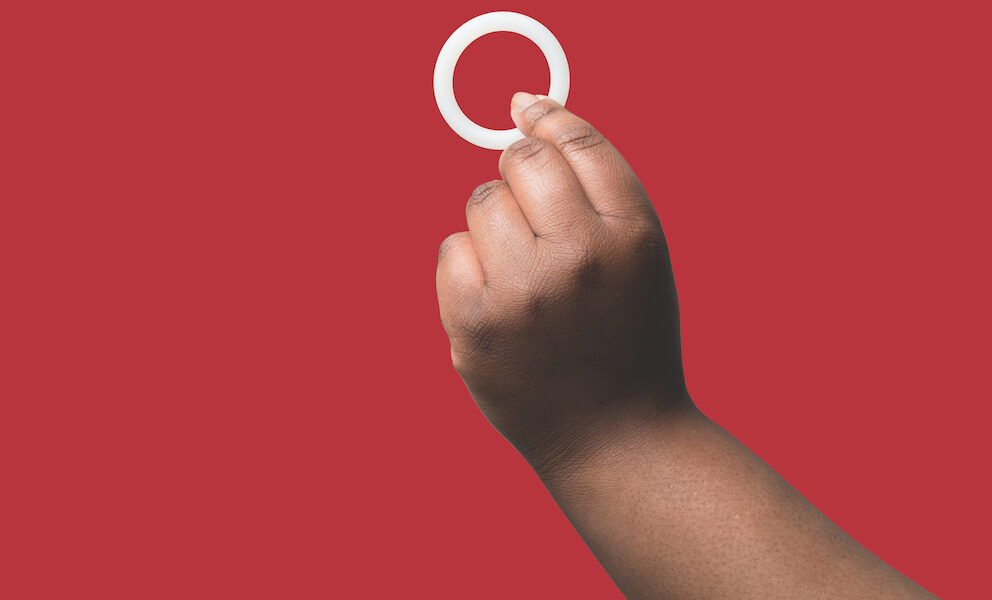- Innovative product to help women reduce the risk of HIV infection
- Ring slowly releases dapivirine in the vagina over one-month period
GOSEGO MOTSUMI
Ahead of World AIDS Day that falls on the 1st December every year, the Population Council announced that the dapivirine vaginal ring (DVR), has now gained regulatory approval through import permits for use in 11 countries, Botswana among them.
Kiara Health – a 100 percent South African-owned pharmaceutical manufacturing and medtech company – recently signed a Memorandum of Understanding with the Population Council for a licence to the DVR also referred to as the PrEP Ring.
This is an innovative product that helps women reduce the risk of HIV infection and is the first registered ring-based, discrete and fully woman-controlled HIV prevention choice developed with women in mind.
BOMRA-approved
“The DVR was recently approved by the regulatory authority in Botswana, BOMRA (Botswana Medicines Regulatory Authority),” Diantha Pillay, Associate Director for Product Access and Medical Science for the Population Council’s South African affiliate office, said in an interview.
“However, the ring is not yet available in the public or private sector as yet. Private wholesalers or pharmacies are free to buy the product from the global distributor as this is a registered product in-country.”
Long-acting HIV prevention method
The ring is the first long-acting HIV prevention method designed for women that is approved for use in women aged 18 and above. Made of flexible silicone, the ring slowly releases the antiretroviral drug dapivirine in the vagina over a one-month period.
It was developed to provide a long-acting prevention method for women when higher-efficacy products like daily oral PrEP are not viable options.
Titled “MTN-034, Reversing the Epidemic in Africa with Choices in HIV Prevention,” the study was recently published in the Lancet HIV where it emphasised the importance of choice.
The research found that after using both PrEP and the ring for six months each, 67 percent of the participants chose the ring, 31 percent chose oral PrEP, and only 2 percent chose to use neither.
Excellent safety profile
Said Pillay: “The DVR is a non-systemic product, unlike pills or injections. This means that the drug dapivirine is concentrated in the tissues in the vagina and very minute quantities are in the blood.
“Because of this, the ring has an excellent safety profile and there are no safety concerns. Some side effects from the ring seen during clinical trial assessments of the ring include urinary tract infections, lower abdominal pain and vaginal discharge.
“The DVR is a monthly ring – it releases dapivirine into the vagina over a month. After one month/28 days, the ring needs to be removed and replaced with a new ring.”
World Health Organisation (WHO) data shows that girls and young women aged 24 and younger in sub-Saharan Africa remain one of the most at-risk populations for HIV/AIDS, with infections three times those of similarly aged boys and young men in the region.
Excellent safety profile
“Because of economic disparities and uneven excellent safety profile within sexual partnerships, women and girls are often unable to negotiate safer sex or even choose when or with whom they have sex,” Pillay noted.
“These factors also drive gender-based violence, which further increases women’s risk of HIV infection. Therefore, there is a need for comprehensive prevention strategies that include options that women control.”
Senior director for strategy and commercial relations for the Council, Anita Bhatia Garg, has been involved in the ring’s development for more than 15 years. “Women have told us they want more options in the future, and we’re responding,” she said.
“Women need different choices for HIV prevention at different stages of their lives, and the ring could be a critically important option. It complements existing HIV prevention tools and circumvents well-documented challenges that adolescent girls and young women face in taking pills on a daily basis.”
According to the chief spokesman of the Ministry of Health, Christopher Nyanga, they are aware of the DVR product and are exploring possibilities of its use in Botswana.
“After the necessary processes have concluded, the ministry will be in a position to clearly state whether this product will form part of its sexual reproductive health offerings or not,” he said. “This will also include any guidelines on usage, if it is adopted.”
Longer lasting option
Meanwhile, the Population Council is developing a longer duration dapivirine ring that women can use for three months to significantly lower annual costs and offer a more convenient option to protect themselves.
Development of this longer duration ring will be completed and submitted for regulatory approval in the next 12 to18 months, after which Kiara Health will assume a leading role in ensuring its access.
SPS Pharma in Sweden currently manufactures the monthly ring, and Imres B.V., an operating company within the Imperial Logistics Group based in the Netherlands, manages global distribution, with no profit taken by the Population Council.

